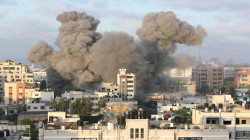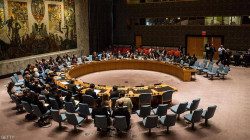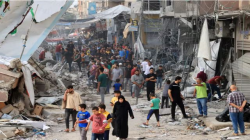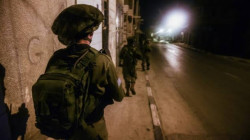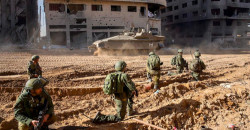Inquiry into October 7 attack says Israeli army failed
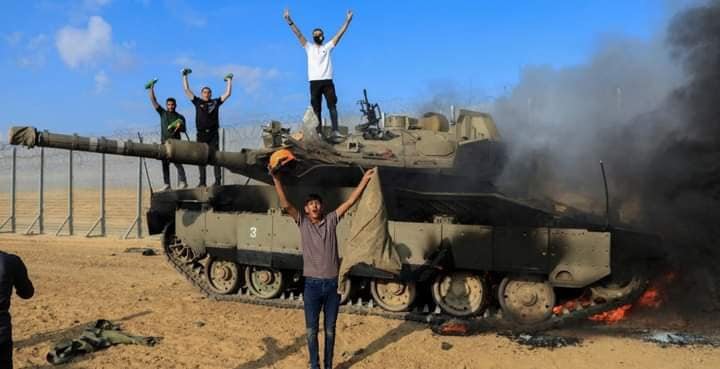
Shafaq News/ An Israeli internal investigation into the attack on the kibbutz of Be’eri on October 7 found that the Israeli military “failed in its mission to protect the residents” and “was not prepared for the extensive infiltration scenario” by Hamas that day, which involved “multiple infiltration points by thousands of terrorists attacking dozens of locations simultaneously.”
Be’eri, located in in the south near Gaza, was one of the hardest hit communities in the October 7 attacks when Hamas militants stormed the kibbutz, killing 101 Israelis, according to the report.
Thirty people were reportedly abducted that day.
The inquiry said the military had trained for isolated and specific infiltrations. “As a result, there were no additional reserve forces in the area that could have been sent to Kibbutz Be’eri,” the inquiry said.
Responding to the inquiry’s report, the Chief of the General Staff, Lt. Gen. Herzi Halevi said it “clearly illustrates the magnitude of the failure and the scale of the disaster that befell the residents of the south who defended their families with their bodies for many hours while the IDF was not there to protect them.”
The inquiry found that “the IDF struggled to create a clear and accurate situational assessment of what was happening in the kibbutz until the afternoon of October 7,” even though the local emergency team had provided an updated assessment.
“Combat in the area during the initial hours was characterized by a lack of command and control, a lack of coordination, and a lack of order among the different forces and units. This led to several incidents where security forces grouped at the entrance to the kibbutz without immediately engaging in combat,” the report said.
“The inquiry found that the security officials did not provide sufficient warning to the residents of Kibbutz Be’eri about the infiltration of terrorists during the initial hours of the terrorist attack,” the report continued.
The inquiry concluded that the turning point came only when a senior officer was appointed to coordinate forces in the area, leading to the regaining of operational control of the kibbutz.
“Despite operational errors and mistakes in force deployment, the inquiry team noted that the combat in Be’eri included a series of acts of heroism and supreme courage by the fighting forces, commanders, and security personnel who fought in the kibbutz, saving many residents,” the report said.
Thirty one security personnel were killed in the area after some “340 terrorists infiltrated the kibbutz,” of whom about 100 were killed, it said.
The inquiry team found that that the attack on Be’eri began at around 7 a.m. local time on October 7 and that Hamas controlled the kibbutz for about four hours.
During this period, the “first IDF soldiers arrive, are hit, evacuate the wounded, exit the kibbutz, and, positioning themselves at the entrance of the kibbutz, engage in combat with the terrorists who reached the gate.”
By 04:15 p.m., the 99th Division had established itself at the kibbutz and began organizing command and control.
By 06:00 p.m., “about 700 IDF soldiers and security forces are operating in the area of the kibbutz,” the inquiry found.
The Chief of the General Staff, Lt. Gen. Halevi, accepted the conclusions of the inquiry, and acknowledged that “the IDF did not fulfil its mission to defend the residents in the most grave manner and failed in its mission.”
Halevi noted that “from the afternoon hours onwards, forces were waiting outside the kibbutz while the massacre continued inside. This situation is extremely grave and cannot occur.”
“The reasons for this were found to include that commanders who arrived with forces entered the kibbutz with a part of the force to better understand the situation; some forces did not initiate contact since they did not understand the severity of the situation and the lack of adequate forces; some of those waiting outside were support forces providing a perimeter for those engaged in combat inside the kibbutz,” he said.
As for prioritizing the evacuation of wounded soldiers, Halevi said that civilian protection was the highest-priority mission. “Soldiers must always give priority to assisting civilians in evacuation, defense and any other need that arises in a combat zone,” he said.
Separately, Halevi told a graduation ceremony Thursday for new officers that the Israeli had worked with all partners “to understand in detail and depth what happened and what we must learn to prevent it from happening again in the future.”
